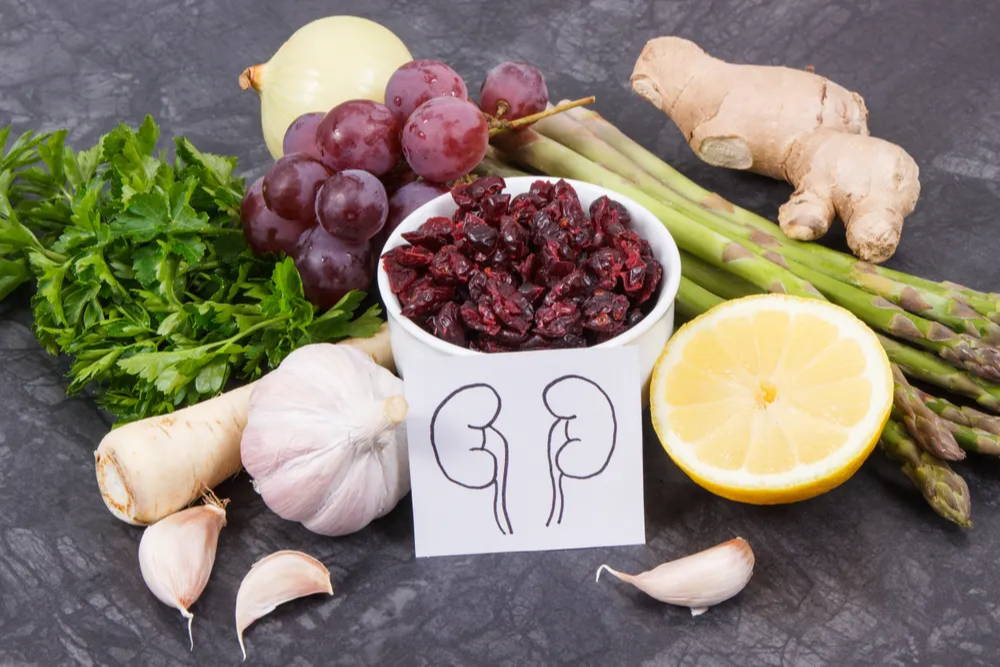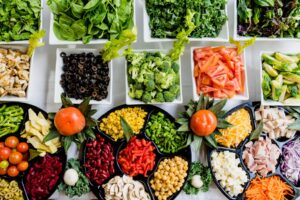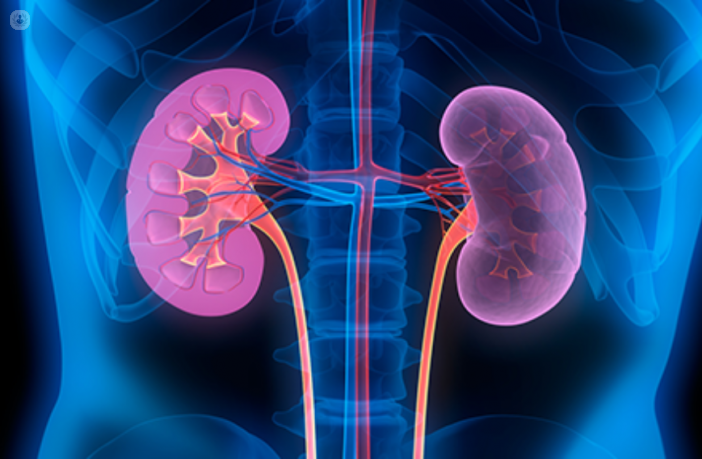To control your Chronic Kidney Disease, you might need to alter your diet (CKD). Develop a meal plan with the help of a certified dietitian that incorporates foods you enjoy while also keeping your kidneys healthy.
When you have Chronic Kidney illness, you’ll need a kidney-friendly meal plan (CKD). You can stay healthier if you keep track of everything you eat and drink. This section contains information for people with renal disease who do not require dialysis.

So what were the advantages of a food plan?
Your health is influenced by what you eat and drink. Maintaining a healthy weight and eating a well-balanced, low-salt, low-fat diet will help you manage your blood pressure. If you have diabetes, carefully picking what you eat and drink might help you control your blood sugar. Controlling hypertension and diabetes may help avoid the progression of renal disease.
A diet and foods for Chronic Kidney Disease diet may also aid in the prevention of additional kidney impairment. A diet and foods for chronic kidney disease (CKD) diet eliminates certain items in your meals to prevent nutrients from collecting in your system.
The fundamentals of a healthy diet
You must check how much of particular nutrients you consume with all meal plans, including the diet and foods for Chronic Kidney Disease (CKD), such as:
- Calories
The calories you eat and drink provide energy to your body. Calories in your diet come from protein, carbs, and fat. The number of calories you require is determined by your age, gender, body size, and amount of exercise.
Depending on your weight-loss objectives, you may need to change the number of calories you consume. Some people will have to restrict their calorie intake. Others might require more calories. Your doctor or a dietitian can assist you in determining how many calories you should consume per day. Make a meal plan with your Nephrologist in Bangalore that helps you receive the proper amount of calories, and stay in touch for support.
- Protein
Protein is one of your body’s building blocks. Protein is required for your body to develop, heal, and stay healthy. Protein deficiency can result in brittle skin, hair, and nails. However, eating too much protein can be harmful. You might need to alter your protein intake to be healthy and feel your best.
The amount of protein you should consume is determined by your body weight, degree of exercise, and health problems. Some doctors advise that people with renal illness decrease their protein intake or modify their protein source. This is because a high-protein diet causes the kidneys to work harder, potentially causing additional damage. Consult your Nephrologist in Bangalore to determine how much protein you should consume.
- Carbohydrates
Carbohydrates (often known as “carbs”) are the simplest form of energy for your body to utilise. Fruits and vegetables are excellent providers of carbs. Sugar, honey, gummy candy, fizzy drinks, and other sweetened drinks are all unhealthy carbohydrates sources.
Some carbs are heavy in potassium and sodium, which you may need to reduce depending on your kidney stage of disease. Later, we’ll go over this topic in greater depth. If you have diabetes, you might have to keep an eye on your carbohydrate intake.
- Fat
To stay healthy, you must include fat in your diet. Fat offers you energy and aids in the absorption of some nutrients in your diet. Too much fat, on the other hand, can contribute to weight gain and cardiovascular disease. When possible, restrict fat in your diet and choose healthy fats.
- Sodium
Sodium (salt) is a mineral that may be found in nearly every diet. If you consume too much salt, you will become thirsty, which will cause swelling and increase your blood pressure. This might cause further kidney damage as well as make your heart beat faster.
Limiting your salt intake is one of the best things you can do to stay healthy. To keep your sodium intake in check, make the following changes to your diet:
- When cooking or eating, avoid adding salt to your food. Use fresh herbs, lemon juice, or other salt-free spices in your cuisine.
- Instead of canned vegetables, opt for fresh or frozen vegetables. Before preparing or eating canned veggies, drain and rinse them to remove any excess salt.
- Processed meats such as ham, bacon, sausage, and lunch meats should be avoided.
- Instead of crackers or other salty snacks, eat fresh fruits and vegetables.
- High-sodium canned soups and frozen entrees should be avoided. Pickled foods, such as olives and pickles, should be avoided. High-sodium condiments including soy sauce, BBQ sauce, and ketchup should be avoided.
- Portions
It’s a good start to consume nutritious foods, but eating too much of anything, even healthy foods, can be problematic. Portion management, or keeping track of how much you eat, is another important aspect of a balanced diet.
To help you keep track of your portions, try the following:.
- To find out how much of each nutrient is in one serving, look at the nutrition facts label on a food. Many packages contain multiple servings. A 20-ounce bottle of Coke, for example, is actually two-and-a-half servings. Many fresh goods, such as fruits and vegetables, lack nutrition information labels. For a list of nutrition data for fresh foods and recommendations on how to measure the proper portions, consult your Nephrologist in Bangalore.
- Slowly consume your food and quit when you are no longer hungry. It takes your stomach around 20 minutes to signal to your brain that you are full. If you eat too rapidly, you may consume more calories than you require.
- It’s best not to eat while doing something else, like watching TV or driving. You might not know how much you’ve eaten if you’re distracted.
- Do not eat the food straight from the packaging. Instead, remove one serving of food from the bag or box and store it.
Portion control is an essential component of every meal plan. It’s even more crucial in a diet and foods for Chronic Kidney Disease (CKD) diet meal plan, because you may need to limit how much of certain foods and beverages you consume.

What makes a diet and foods for chronic kidney disease (CKD) unique?
When your kidneys aren’t performing properly, waste and fluid accumulate in your body. The waste and additional fluid can harm your heart, bones, and other organs over time. A kidney-friendly diet restricts the amount of specific minerals and fluids you consume. This will prevent waste and fluid from accumulating and causing difficulties.
Your diet plan should be as rigid as possible depending on your stage of kidney disease. You may have few or no restrictions on what you eat and drink in the early stages of renal disease. As your kidney disease progresses, your doctor may advise you to limit:
- Potassium
Potassium is a mineral that may be found in nearly every diet. Potassium is required by your body to keep your muscles working, but too much potassium can be harmful. Potassium levels can be too high or too low when your kidneys aren’t performing properly. Muscle cramps, irregular heartbeat, and muscle weakness can all be caused by too much or too little potassium.
You may need to decrease your potassium intake if you have kidney problems. If you need to limit potassium, talk to your Nephrologist in Bangalore
- Phosphorus
Phosphorus is a mineral that may be found in nearly every diet. It helps to keep your bones healthy by combining calcium and vitamin D. The appropriate amount of phosphorus is kept in your body by healthy kidneys. Phosphorus might build up in your blood if your kidneys aren’t performing properly. Too much phosphorous in the blood can cause weak, easily broken bones.
Your doctor may also prescribe a phosphate binder, depending on the stage of your renal illness. This prevents phosphorus from accumulating in your blood. Although a phosphate binder may be beneficial, you should still limit your phosphorus intake. Consult your doctor to see if a phosphate binder is appropriate for you.
- Fluids
Water is necessary for survival, but if you have kidney illness, you may not require as much. This is due to the fact that damaged kidneys do not eliminate excess fluid as efficiently as they should. It is harmful to have too much fluid in your body. High blood pressure, edoema, and heart failure are all possible side effects. Extra fluid can also accumulate around your lungs, making it difficult to breathe.
Your doctor may advise you to decrease fluid intake depending on your stage of renal disease and medication. If your doctor advises you to do so, you will need to reduce the amount of alcohol you consume. You may also need to limit your intake of some foods that are high in water.
Dietary restrictions
Vitamins
It may be difficult to receive all of the vitamins and minerals you require if you follow a diet and foods for chronic kidney disease (CKD). Your Nephrologist in Bangalore may recommend a particular supplement designed for persons with renal disease to help you obtain the proper quantities of vitamins and minerals.
A particular type of vitamin D, folic acid, or iron pill may also be recommended by your Nephrologist in Bangalore to help avoid some frequent side effects of kidney disease, such as bone disease and anaemia. If you have renal illness, regular multivitamins may be harmful to your health. They may have an excess of some vitamins and a deficiency in others. Your Nephrologist in Bangalore can assist you in determining which vitamins are best for you.
Bottom Line
- Learn what good nutrition entails for persons with kidney illness at any stage, including those on dialysis and those who have had a kidney transplant.
- Examine what each nutrient implies for persons with kidney illness, as well as how much of each nutrient is found in typical foods.



